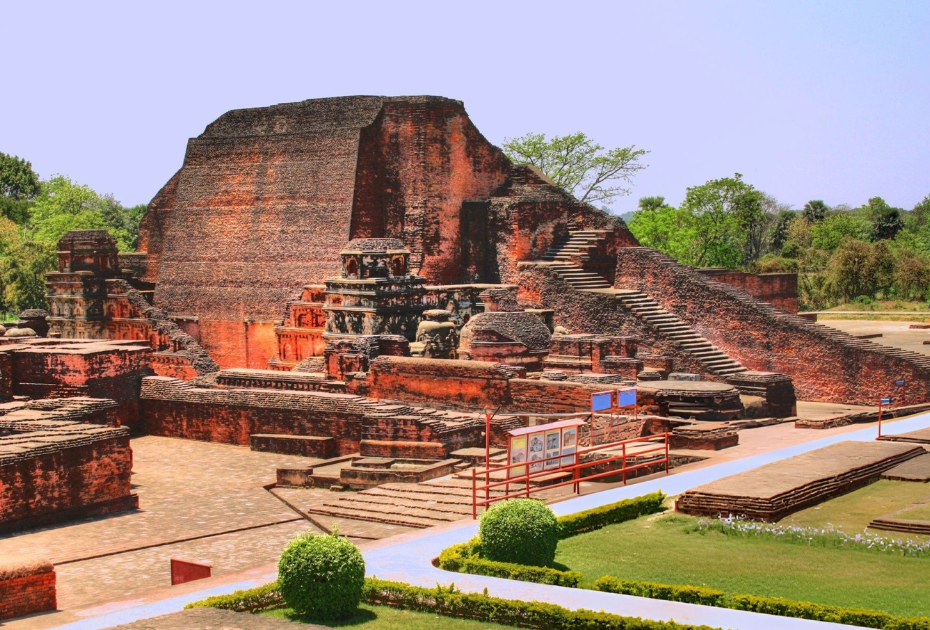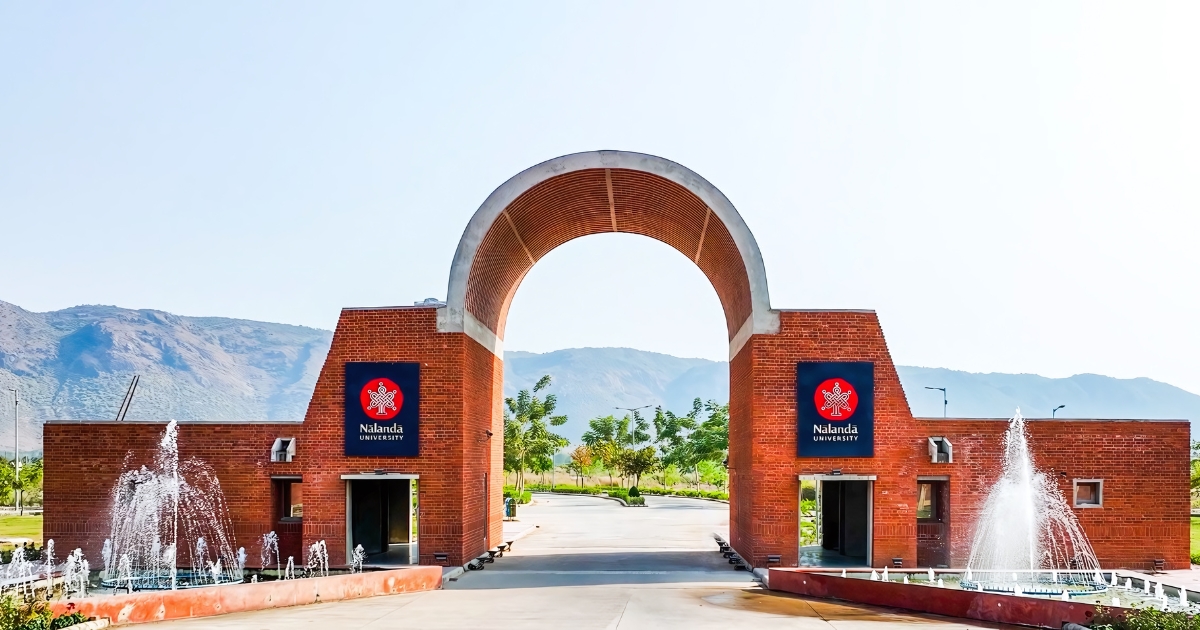Prime Minister Narendra Modi inaugurated the new campus of Nalanda University on 19 June 2024, near the ancient ruins in Rajgir, Bihar. This event marks a significant milestone in India’s ambition to re-establish itself as a global centre of learning.
A Blend of Sustainability and Tradition
The new campus spans around 100 acres and incorporates two important building ideologies: carbon reduction and Vastu Shastra, an ancient Indian system of architecture. Designed as a ‘Net Zero’ Green Campus, it features eco-friendly architecture, a solar plant, water treatment and recycling facilities, and extensive water bodies. This modern infrastructure aims to blend sustainability with traditional Indian architectural principles.
Also Read: NagaEd wins TiE50 award for transforming tribal education
Historical Significance of Nalanda University
Founded in the 5th century CE by Emperor Kumaragupta, Nalanda University was one of the world’s first residential universities. At its peak, it housed around 2,000 teachers and 10,000 students from various countries, including China, Korea, Japan, and Tibet.
The university was renowned for its vast library, which contained approximately 9 million manuscripts covering a wide range of subjects, including religion, science, and medicine. However, the university met a tragic end in the 12th century when it was destroyed by an invader named Bakhtiyar Khilji, who also burned down its library.

Revival and Inauguration
The revival of Nalanda University was first suggested by Dr APJ Abdul Kalam, India’s president from 2002 to 2007. Upon his suggestion, the Indian government re-established Nalanda, and the new campus is a testament to this vision. The inauguration ceremony was attended by dignitaries including External Affairs Minister S. Jaishankar, Bihar Governor Rajendra Arlekar, Chief Minister Nitish Kumar, and foreign envoys from 17 countries, reflecting the global interest in this historic institution.
Challenges and Milestones
Despite the challenges faced during the revival project, including slow progress in fundraising and infrastructure development, significant milestones have been achieved. The new campus is now complete, and students from over 20 countries have enrolled, marking a new chapter in Nalanda’s storied history.
Also Read: Ete Coffee and Coffee Board of India hold training to elevate Nagaland coffee
Interdisciplinary Studies and Global Collaboration
Nalanda University aims to foster interdisciplinary studies and global academic collaboration. It offers postgraduate and doctoral programmes in various fields, including Historical Studies, Ecology and Environmental Studies, Buddhist Studies, Philosophy, Comparative Religions, and Management Studies. The university aspires to be a centre for civilisational dialogue and inter-faith understanding, reflecting its historical roots.
Preserving India’s Cultural and Educational Heritage
The revival of Nalanda University is seen as a significant step in preserving and promoting India’s rich cultural and educational heritage. It symbolises the country’s commitment to intellectual excellence and cultural exchange. The university’s international collaborations and partnerships with institutions worldwide aim to enhance research and academic excellence. It is expected to attract scholars and students globally, fostering a vibrant academic community.
Sustainable Development and Environmental Stewardship
The eco-friendly design of the new campus underscores India’s commitment to sustainable development and environmental stewardship. The ‘Net Zero’ Green Campus serves as a model for sustainable infrastructure in higher education. The revival of Nalanda University is also expected to boost the local economy and contribute to the socio-economic development of the region. It aims to promote regional peace and understanding through education and cultural exchange.
Challenges in Becoming a Global Learning Hub
However, India faces several challenges in its quest to become a global learning hub. One of the most pressing issues is maintaining the integrity of its examination system. Instances of paper leaks and irregularities in entrance tests like NEET have raised concerns. Ensuring the integrity of exams is crucial for India to establish itself as a global centre of learning.
Another challenge is the gap between the allocated budget for education and actual spending. In the last financial year, India set aside 1.6 lakh crore rupees for education but spent only 1.08 lakh crore rupees. Increasing spending to meet the National Education Policy’s target of 6% of GDP is essential for improving infrastructure, teacher salaries, and facilities.
Additionally, the curriculum in many Indian educational institutions, including engineering colleges, has not seen significant updates in decades. Modernising the syllabus, especially with emerging technologies like artificial intelligence, is necessary for India to remain competitive in the global education sector.
Also Read: How Congress pulled off a historic win in Nagaland’s lone Lok Sabha seat
India’s Potential as a Global Education Destination
Despite these challenges, India is well-placed to become a global learning hub. Elite Indian colleges like the Indian Institutes of Technology (IITs) have garnered international acclaim. India is working to set up two IITs abroad, one in the UAE and the other in Zanzibar. Moreover, India is a free society, making it an attractive destination for foreign students. Currently, around 46,000 foreign students from 170 countries study in India, reflecting the country’s growing appeal as an educational destination.
Conclusion
The revival of Nalanda University is a testament to India’s genuine intentions to once again become a global centre of learning. While challenges remain, the country’s commitment to education and cultural exchange is evident. The new Nalanda University campus stands as a symbol of India’s rich educational heritage and its aspirations for the future.




